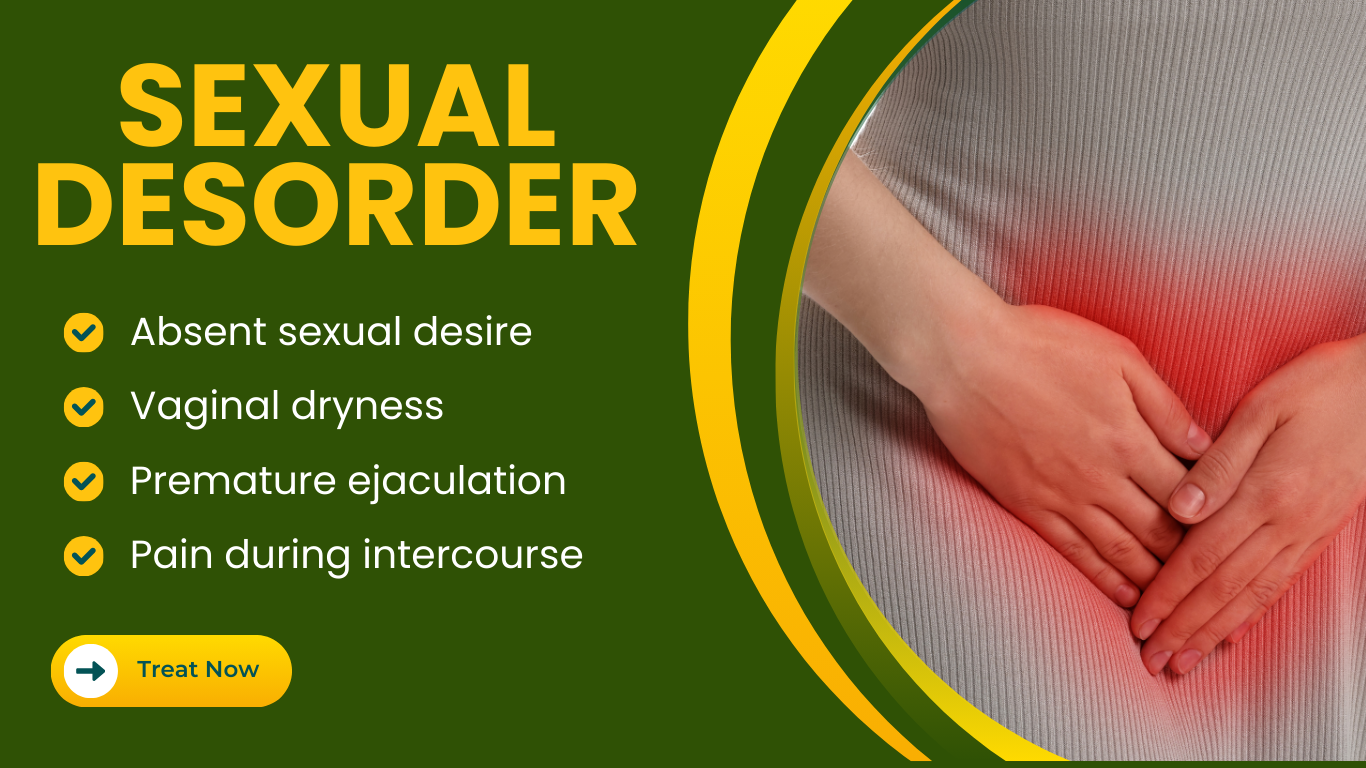1. What are sexual disorders?
Sexual disorders are problems that prevent a person from experiencing satisfaction during sexual activity. They may involve desire, arousal, orgasm, or pain.
2. What are the main types of sexual disorders?
Sexual desire disorders – low or no interest in sex.
Arousal disorders – inability to become physically aroused (e.g., erectile dysfunction in men, vaginal dryness in women).
Orgasm disorders – delayed, absent, or premature orgasm.
Sexual pain disorders – pain during sex (dyspareunia, vaginismus).
3. What causes sexual disorders?
Physical causes: Diabetes, heart disease, hormonal imbalance, nerve damage, alcohol, drugs, certain medicines.
Psychological causes: Stress, depression, anxiety, relationship problems, past trauma.
Lifestyle factors: Smoking, obesity, lack of exercise, poor sleep.
4. What are common symptoms of sexual disorders?
Low or absent sexual desire
Inability to get or maintain an erection (men)
Vaginal dryness or difficulty with arousal (women)
Premature ejaculation or delayed orgasm
Pain during intercourse
Emotional distress or relationship strain
5. How can sexual disorders be treated?
Medical treatment: Hormone therapy, medications (like sildenafil for men, lubricants for women)
Counseling/sex therapy: For psychological or relationship issues
Lifestyle changes: Exercise, healthy diet, reducing alcohol/smoking, stress management
Treating underlying diseases: Diabetes, hypertension, depression, etc.

